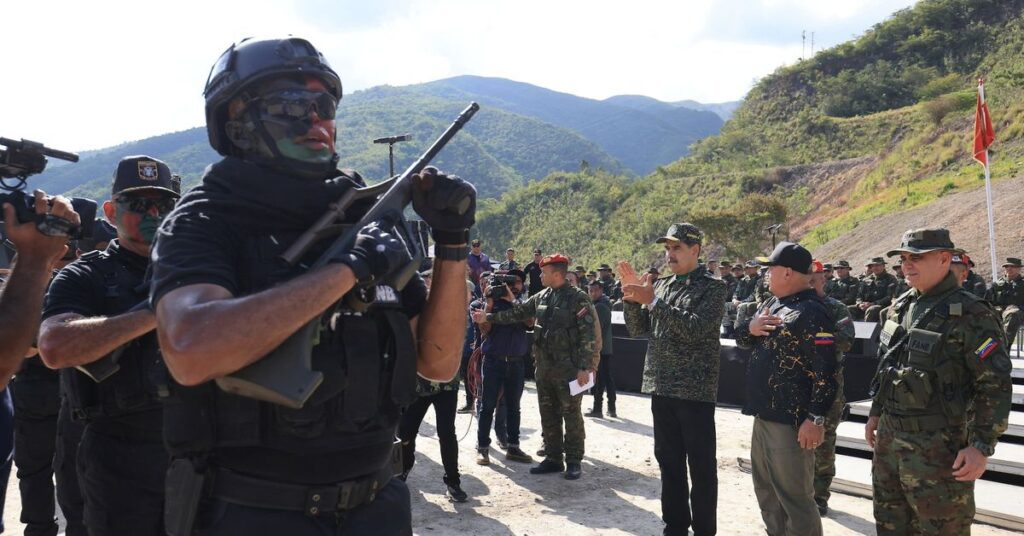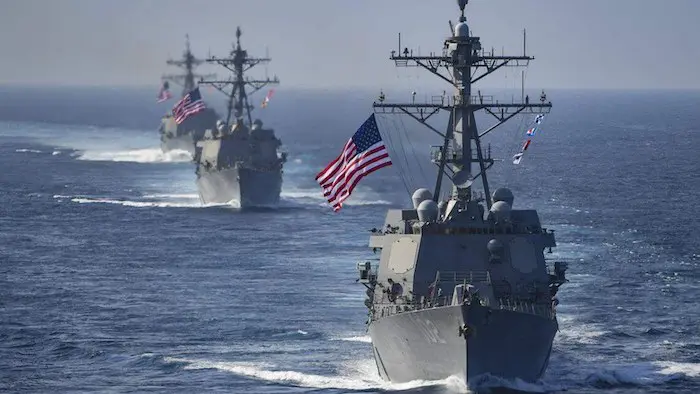Schreiner Parker, Partner and Head of Emerging Markets & NOCs at Rystad Energy, says the recent deployment of U.S. warships to the Caribbean is unlikely to heighten Guyana’s territorial controversy with Venezuela.
In an invited interview with OilNOW this week, Parker explained his position. He believes that logistical limitations make a Venezuelan military move against Guyana implausible. “I don’t think it would happen for the same reason that Maduro could never invade Guyana. There’s not a road that is paved that links the two countries. The only paved road you have to go through is Brazil,” he told OilNOW.
According to Parker, if the U.S. were to act militarily against Venezuela, it would not involve Guyana’s territory. “If the U.S. were going to do anything from an invasion standpoint, [it would] be very similar to Panama — you can come by sea, establish air superiority, and then drop in troops from an aircraft carrier,” Parker said.

Trinidad could be an access point. And Trinidad and Tobago will grant the United States access to its territory if Washington seeks to defend neighboring Guyana against any attack or invasion by Venezuela, its Prime Minister, Kamla Persad-Bissessar, recently said.
Persad-Bissessar said no such request has been made, but stated, “I want to make it very clear that if the Maduro regime launches any attack against the Guyanese people or invades Guyanese territory and a request is made by the American Government for access to Trinidadian territory to defend the people of Guyana, my government will unflinchingly provide them that access.”
The United States is sending warships to the Caribbean as part of a broader strategy to counter what it sees as growing security threats in the region, particularly from Venezuela. According to Reuters, five warships are being sent, along with 4,000 troops. Washington has long opposed the Maduro government, accusing it of undermining democracy and fueling instability through corruption, drug trafficking, and alliances with U.S. adversaries.
However, Parker acknowledged that Venezuelan President Nicolás Maduro could view this through the lens of the border controversy. “The drug war has been ongoing for a long time. Why this, why now, exactly? There’s always room to ask that question,” he remarked.
Persad-Bissessar has stated that Trinidad and Tobago fully supports Washington’s deployment of military assets in the region to combat transnational drug cartels, citing record murder rates, gang violence and narcotics trafficking in the twin-island nation and across the Caribbean.
Parker did contend that U.S. foreign policy decisions remain unpredictable under President Donald Trump. “Trying to get inside Trump’s mind is impossible. There’s no telling what he may or may not do at any given moment. So, in that sense, you can rule nothing out. Everything is on the table,” Parker said.



